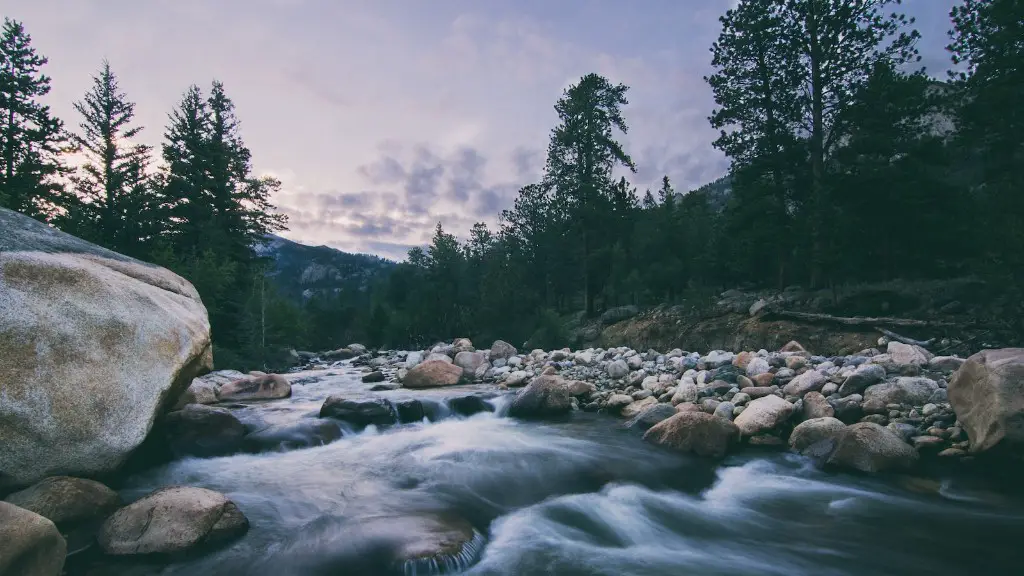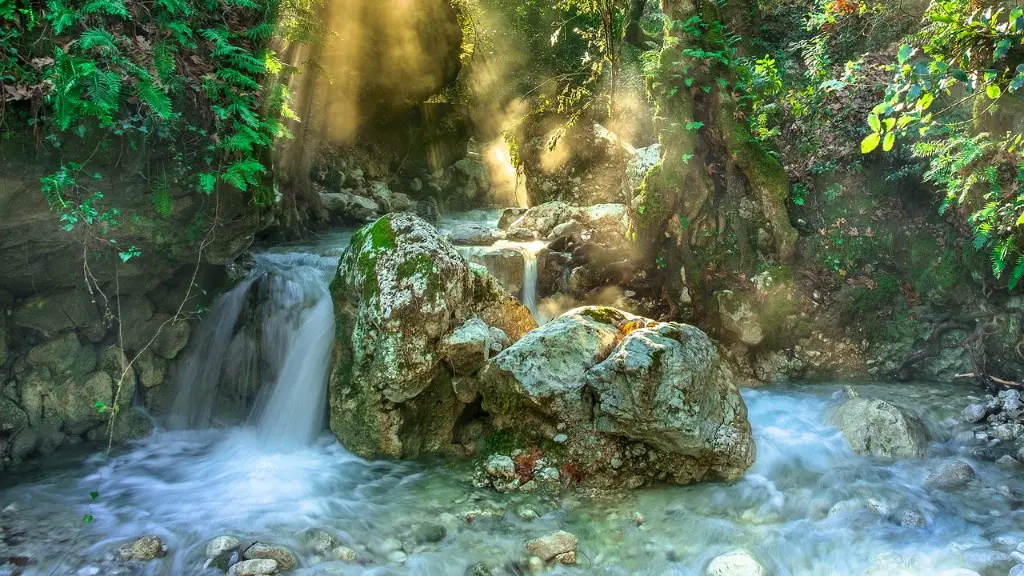Introduction to the Mississippi River
The Mississippi River is one of the most iconic rivers in the United States and around the world, stretching over 2,000 miles and running through 10 different states. It is home to many species of fish and wildlife, as well as many historic and cultural sites. Despite its size and importance, the Mississippi River has been seeing a severe shortage in water levels, and this has caused concern amongst wildlife organizations and residents.
Why is the Water Level Low?
One of the major contributing factors to the low level of the water in the Mississippi River is the increased demand for water for agriculture, industry, and urbanization. This increase in demand has caused the water supplies to decrease, resulting in the Mississippi River’s water levels being particularly low. It is estimated that over half of the water used in agricultural and industrial purposes in the states that border the river is what is causing the levels to drop. Additionally, research has shown that this decrease in water level is also due to other aspects such as changing climate patterns.
Impact of Low Water Level on Wildlife
The lower water levels in the Mississippi River have created a strain on the ecosystem in the area. Wildlife is being affected by the water shortages, as they are dependent upon the river for food and habitat. One of the biggest concerns is the impact on the fish population, as the decreased water levels mean they have less space to swim and less food to eat. This can result in a decrease in their numbers.
Higher Temperature of Water
The water temperature in the Mississippi River has also increased due to the low water levels. Higher temperatures can put many types of fish and other marine life in danger, as it can cause them to become stressed or even die. This increase in temperature is compounded by the fact that the hotter water will evaporate faster than cold water, further decreasing the amount of water in the river.
Boat and Recreational Activities
The dwindling water levels in the Mississippi River have also had a negative effect on recreational activities such as boating and fishing. Low water levels can make it difficult for boats to travel, and it can also reduce the chances of catching fish. This can negatively affect tourism, as the river is a major draw for those looking to go out on the water.
What Can be Done?
The decrease in water levels of the Mississippi River is a serious problem, and solutions to the issue need to be explored. Organizations are working to ensure that water is managed in sustainable ways, and conservation measures are being taken to ensure that the water can remain clean and healthy. Additionally, promoting the use of renewable sources of energy can help reduce the demand for water from energy industries, allowing the river to receive more, and longer lasting water levels.
Economic Impact of Low Water Level
The lower water levels can also have an economic impact, as the Mississippi River is a major transportation route for Midwestern manufacturers, allowing them to transport their goods more cost-effectively. If the low water levels make it difficult for them to navigate the river, it can result in companies being forced to look for other ways of transport, which may be more expensive.
Government Regulation
The government has taken steps to protect the Mississippi River, with the Clean Water Act and other environmental regulations in place to ensure that the water is safe and clean. Additionally, the US Army Corps of Engineers is continuously monitoring the river and working to maintain a stable water level. Nevertheless, more needs to be done to ensure that the water levels stay at an acceptable level, as the current regulations are not enough to adequately protect the river’s ecosystem.
Climate Change
Climate change is also thought to be a contributing factor to the decreases in the water levels of the Mississippi River. Warmer temperatures increase evaporation rates, which can lead to more water being lost from the river. Additionally, increased temperatures can also lead to more runoff from farms and other industries, leading to the river having to carry more water than it normally would. As a result, climate change can have a significant effect on the Mississippi River ecosystem.
Conclusion
The decreasing water levels of the Mississippi River is a serious problem that is impacting the local wildlife, businesses, and recreation. Hopefully, with the help of environmental regulations and conservation measures, the water levels of the river can remain at acceptable levels. It is essential that governments, organizations, and citizens remain vigilant and take steps to protect this iconic river for generations to come.


